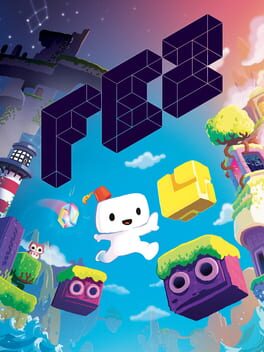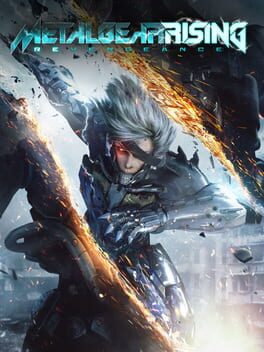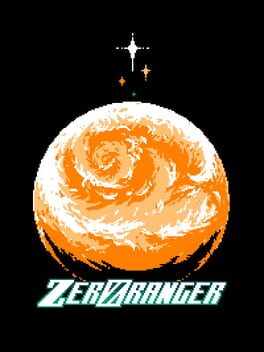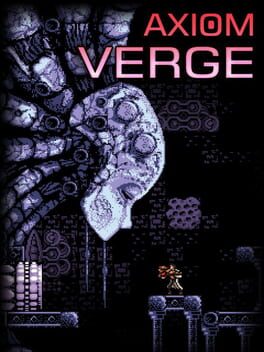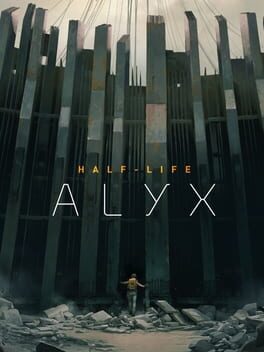23 reviews liked by SiD
The big daddy. Best game of all time. 10 out of 10 out of 10 awards spilling off the garage shelf. Yet here I am slapping it with a 5/10.
I bought into the hype when I was young, and replayed it over and over. Why? Probably because the game didn't actually live up to my expectations, and I was hoping, WILLING it to be better, be more than what it was, on each playthrough. As if I could Jedi-mind-trick it into being different, the way I hoped recorded VHS tapes would end differently than the last time.
In reality Ocarina is a slow, blocky, restrictive slog with suffocating geography.
The field impresses at first -- you can't even see the castle until you crest the hill -- but it's an empty polygonal arena with little interest. And the geography of Hyrule itself as a whole is unnatural and unconvincing (we wouldn't get a persuasive Hyrulean CG landscape until Breath of the Wild).
It's cool that you can chop up signs at different angles (the first and last time your sword direction matters), yet this pales next to the omnipresent friction and interactivity felt in Link to the Past.
Even the ballyhooed Z-targeting has a dubious pedigree -- every 3D Zelda game since has been straight-jacketed by OoT's approach to combat.
I think the real magic of OoT was watching a polygonal adventure puppet, complete with sword and shield, react contextually to the environment. Look how he jumps vs how he hops. Hold against the block and watch him pull himself up. Leave him alone and see how he adjusts his gear. It's really a test of gamer vs developer, i.e. "did those designers think of this?" It's the bullshit of Bastion, impressing us with a narrator that "notices" how we act up.
But there is none of this dog-and-pony hustle in the original Legend of Zelda. There it's player vs world. Can you discern the rules, even if the game-space never spells them out for you in explicit text? Can you figure out the telos? It has been sad to watch Nintendo, the original purveyor of video game imagination, rely more-and-more over the years on carnival magician tricks.
I bought into the hype when I was young, and replayed it over and over. Why? Probably because the game didn't actually live up to my expectations, and I was hoping, WILLING it to be better, be more than what it was, on each playthrough. As if I could Jedi-mind-trick it into being different, the way I hoped recorded VHS tapes would end differently than the last time.
In reality Ocarina is a slow, blocky, restrictive slog with suffocating geography.
The field impresses at first -- you can't even see the castle until you crest the hill -- but it's an empty polygonal arena with little interest. And the geography of Hyrule itself as a whole is unnatural and unconvincing (we wouldn't get a persuasive Hyrulean CG landscape until Breath of the Wild).
It's cool that you can chop up signs at different angles (the first and last time your sword direction matters), yet this pales next to the omnipresent friction and interactivity felt in Link to the Past.
Even the ballyhooed Z-targeting has a dubious pedigree -- every 3D Zelda game since has been straight-jacketed by OoT's approach to combat.
I think the real magic of OoT was watching a polygonal adventure puppet, complete with sword and shield, react contextually to the environment. Look how he jumps vs how he hops. Hold against the block and watch him pull himself up. Leave him alone and see how he adjusts his gear. It's really a test of gamer vs developer, i.e. "did those designers think of this?" It's the bullshit of Bastion, impressing us with a narrator that "notices" how we act up.
But there is none of this dog-and-pony hustle in the original Legend of Zelda. There it's player vs world. Can you discern the rules, even if the game-space never spells them out for you in explicit text? Can you figure out the telos? It has been sad to watch Nintendo, the original purveyor of video game imagination, rely more-and-more over the years on carnival magician tricks.
Fez
2012
Enquanto eu jogava Fez, sentia que apreciava um mero momento da vida, como uma memória antiga e confortável; o mundo é calmo, o silêncio natural reina e a falta de penalidade, cria uma agradabilidade ótima. Não existe aqui, nada que possa realmente punir o jogador, não existe sensação de frustração, os puzzles não são difíceis e muito menos, frustrantes, é apenas tranquilo.
Se pra Andrei Tarkovsky, o cinema não necessita de explicações, apenas provocar sentimentos no espectador - seja-lá qual for -, Fez para mim é um dos jogos que melhores cansaram isso. O final, apenas larguei o controle para apreciar o navegar pelas imagens líricas compostas, um trabalho de resinificação objetiva do primeiro Plano e último (não sei ao certo, se é correto chamar de planos a forma que a câmera mostra o mundo, mas enfim).
Fez, é conceitualmente simples: ao ganhar o poder de rotacionar o mundo, Gomez (protagonista), é enviando em uma jornada para encontrar os 32 cubos e impedir o colapso do mundo. Apesar do teor urgência, o foco aqui é puramente no silêncio e exploração, o tempo todo aqui, existe um incentivo pra olhar os cantos, ir até o limite e descobrir os mistérios; não tem nada mais interessante, do que entrar em um lugar e se deparar com um QRCode, que ao ler, te dá um código pra resolver um puzzle opcional. Tão esperto, a descoberta de uma nova dimensão por uma criatura bidimensional, dar ao jogador, criatura tridimensional, a possibilidade de manipular aquele mundo.
O tempo todo, esse game parece querer brincar com a mídia, soando até meta em alguns momentos, como um mapa opcional composto por bug de tilemap (imagem com todos os sprites de um jogo). Contudo, o brilho tá na simplicidade de apenas andar por aí, atrás de cubinhos pra formar um maior. Além do idioma "cubico", que existe aqui, que são completamente traduzíveis em uma busca pelo significado dos desenhos; que ajudam a resolver alguns enigmas ou ler falas curtas de NPC's.
Elementos que geralmente me estressam, aqui são tão bem usados, que chega a ser fascinante. Andar mais para ter impulso de chegar em outra plataforma, é tão bem elaborado, na verdade, todos os leveis são belos e agradáveis de jogar, que dá um toque sensível pra tudo.
Sensível; sim, é a palavra certa pra descrever esse game. É de uma imensa sensibilidade e espertes, tudo está ali para evocar uma emoção, uma tranquilidade, um silêncio. Em um mundo tão vivo, com outros personagens para se ter conversas rápidas, mas que mesmo assim, marcam e a arquitetura, singular e chamativa de um povo dimensional. Tudo evoca uma beleza.
Se a mise-en-scéne do cinema clássico, buscava o equilíbrio de todas as ideias, para formar uma unidade, Fez, realiza isso com uma proeza admirável. Tudo perfeitamente planejado e posicionado, cada mapa evoca ideias e pensamentos, tudo é singular e lindo, que leva para uma conclusão bela que dá uma nova dimensão para esse jogo.
Se pra Andrei Tarkovsky, o cinema não necessita de explicações, apenas provocar sentimentos no espectador - seja-lá qual for -, Fez para mim é um dos jogos que melhores cansaram isso. O final, apenas larguei o controle para apreciar o navegar pelas imagens líricas compostas, um trabalho de resinificação objetiva do primeiro Plano e último (não sei ao certo, se é correto chamar de planos a forma que a câmera mostra o mundo, mas enfim).
Fez, é conceitualmente simples: ao ganhar o poder de rotacionar o mundo, Gomez (protagonista), é enviando em uma jornada para encontrar os 32 cubos e impedir o colapso do mundo. Apesar do teor urgência, o foco aqui é puramente no silêncio e exploração, o tempo todo aqui, existe um incentivo pra olhar os cantos, ir até o limite e descobrir os mistérios; não tem nada mais interessante, do que entrar em um lugar e se deparar com um QRCode, que ao ler, te dá um código pra resolver um puzzle opcional. Tão esperto, a descoberta de uma nova dimensão por uma criatura bidimensional, dar ao jogador, criatura tridimensional, a possibilidade de manipular aquele mundo.
O tempo todo, esse game parece querer brincar com a mídia, soando até meta em alguns momentos, como um mapa opcional composto por bug de tilemap (imagem com todos os sprites de um jogo). Contudo, o brilho tá na simplicidade de apenas andar por aí, atrás de cubinhos pra formar um maior. Além do idioma "cubico", que existe aqui, que são completamente traduzíveis em uma busca pelo significado dos desenhos; que ajudam a resolver alguns enigmas ou ler falas curtas de NPC's.
Elementos que geralmente me estressam, aqui são tão bem usados, que chega a ser fascinante. Andar mais para ter impulso de chegar em outra plataforma, é tão bem elaborado, na verdade, todos os leveis são belos e agradáveis de jogar, que dá um toque sensível pra tudo.
Sensível; sim, é a palavra certa pra descrever esse game. É de uma imensa sensibilidade e espertes, tudo está ali para evocar uma emoção, uma tranquilidade, um silêncio. Em um mundo tão vivo, com outros personagens para se ter conversas rápidas, mas que mesmo assim, marcam e a arquitetura, singular e chamativa de um povo dimensional. Tudo evoca uma beleza.
Se a mise-en-scéne do cinema clássico, buscava o equilíbrio de todas as ideias, para formar uma unidade, Fez, realiza isso com uma proeza admirável. Tudo perfeitamente planejado e posicionado, cada mapa evoca ideias e pensamentos, tudo é singular e lindo, que leva para uma conclusão bela que dá uma nova dimensão para esse jogo.
Hollow Knight
2017
i really wish i enjoyed this game as much as everyone else does (or people said i would).
for a game described to me as "metroidvania with precision platforming meets Dark Souls," it really comes out feeling like less than a sum of those parts. in terms of the world design and exploration, the game is great at matching the joy of breaking into every tiny crevasse to find secrets and lore that Dark Souls does. the characters and lightly revealed lore that's steeped in mystery is great. the platforming is serviceable, but whenever the game decides to flip the switch to try and turn into Super Meat Boy (sometimes quite literally with buzzsaws) it feels very disjointed and out of place.
the combat (mainly by way of the bosses) by comparison feels like a chore. even by the end of the game when i had gotten a lot better at maneuvering in fights, most of the boss fights were not engaging or challenging beyond "hope you get the good pattern that allows you to heal". in addition to this, why not be more generous with benches in regards to boss placements?
it's small decisions like this that continued to baffle me as time went on. you get more movement options as the game unfolds, but trekking between areas connected by stags still feels arduous enough to dissuade me from wanting to explore more. i enjoy the lore of the stags, but would fast travelling between benches break the game so much to prevent it from being included?
it's things like this that makes me feel like the game is bloated. this may be a problem of playing the game now that there's 4 extra content patches (give players a way to play the launch version pleaseeeee), but there's just so much in the game that feels like Content For Content's Sake. the game like a love letter to the old metroidvanias the developers loved that has been weighed down by AAA games' addiction to More. i can see the mechanics (literally) taken 1-to-1 from Super Metroid, but i don't see the tightly crafted world, simplicity, or elegance of it. i see a checklist of things to waste time doing rather than a curated experience.
for a game described to me as "metroidvania with precision platforming meets Dark Souls," it really comes out feeling like less than a sum of those parts. in terms of the world design and exploration, the game is great at matching the joy of breaking into every tiny crevasse to find secrets and lore that Dark Souls does. the characters and lightly revealed lore that's steeped in mystery is great. the platforming is serviceable, but whenever the game decides to flip the switch to try and turn into Super Meat Boy (sometimes quite literally with buzzsaws) it feels very disjointed and out of place.
the combat (mainly by way of the bosses) by comparison feels like a chore. even by the end of the game when i had gotten a lot better at maneuvering in fights, most of the boss fights were not engaging or challenging beyond "hope you get the good pattern that allows you to heal". in addition to this, why not be more generous with benches in regards to boss placements?
it's small decisions like this that continued to baffle me as time went on. you get more movement options as the game unfolds, but trekking between areas connected by stags still feels arduous enough to dissuade me from wanting to explore more. i enjoy the lore of the stags, but would fast travelling between benches break the game so much to prevent it from being included?
it's things like this that makes me feel like the game is bloated. this may be a problem of playing the game now that there's 4 extra content patches (give players a way to play the launch version pleaseeeee), but there's just so much in the game that feels like Content For Content's Sake. the game like a love letter to the old metroidvanias the developers loved that has been weighed down by AAA games' addiction to More. i can see the mechanics (literally) taken 1-to-1 from Super Metroid, but i don't see the tightly crafted world, simplicity, or elegance of it. i see a checklist of things to waste time doing rather than a curated experience.
Elden Ring
2022
there's too much to say about this game here so i'll be brief:
Dark Souls came out (relatively) quietly in 2011 and changed the decade of games that followed as its slow burn ramped up in popularity. now that people were paying attention to this game from the start, i can only imagine that this game's effect will be magnitudes greater
Dark Souls came out (relatively) quietly in 2011 and changed the decade of games that followed as its slow burn ramped up in popularity. now that people were paying attention to this game from the start, i can only imagine that this game's effect will be magnitudes greater
God of War
2018
This review contains spoilers
I keep seeing this game show up on "best games of all time" lists and I completely do not get it. This game is just trying to turn God of War into The Last of Us but doesn't understand what made The Last of Us so great.
Firstly, much like The Last of Us, this game's narrative is clearly structured to be told in a linear fashion. However, the player is allowed to hop on a rowboat and go off to do side quests whenever, completely ruining any sense of pacing that the narrative demands.
Secondly, perhaps one of the biggest similarities to The Last of Us is that this game's narrative also centers around a parent/child relationship. Only again, the relationship between Kratos and Atreus is nowhere near as compelling as the one between Joel and Ellie. Not only that, but there were multiple other games that centered around raising a child the same year that all did it more compellingly. The Walking Dead: The Final Season, Life is Strange 2, My Child Lebensborn, I was more invested in all of these than God of War.
And lastly, there is so much ludonarrative dissonance within this story. The game wants to tell you that violence is bad, but with every visceral kill Kratos does, the camera lovingly zooms in to show you a splatter of orange goop spurting out of these mythological creatures. It wants you to love the power fantasy as much as any of the previous entries in the series. Then at the end, Kratos kills Baldur saying something along the lines of "the cycle ends here" as if we didn't just spend an entire game doing what we always do in God of War, killing dudes and ultimately killing a god. The game is afraid of committing to its "violence is bad" narrative because ultimately, it still wants to be a God of War game.
Firstly, much like The Last of Us, this game's narrative is clearly structured to be told in a linear fashion. However, the player is allowed to hop on a rowboat and go off to do side quests whenever, completely ruining any sense of pacing that the narrative demands.
Secondly, perhaps one of the biggest similarities to The Last of Us is that this game's narrative also centers around a parent/child relationship. Only again, the relationship between Kratos and Atreus is nowhere near as compelling as the one between Joel and Ellie. Not only that, but there were multiple other games that centered around raising a child the same year that all did it more compellingly. The Walking Dead: The Final Season, Life is Strange 2, My Child Lebensborn, I was more invested in all of these than God of War.
And lastly, there is so much ludonarrative dissonance within this story. The game wants to tell you that violence is bad, but with every visceral kill Kratos does, the camera lovingly zooms in to show you a splatter of orange goop spurting out of these mythological creatures. It wants you to love the power fantasy as much as any of the previous entries in the series. Then at the end, Kratos kills Baldur saying something along the lines of "the cycle ends here" as if we didn't just spend an entire game doing what we always do in God of War, killing dudes and ultimately killing a god. The game is afraid of committing to its "violence is bad" narrative because ultimately, it still wants to be a God of War game.


